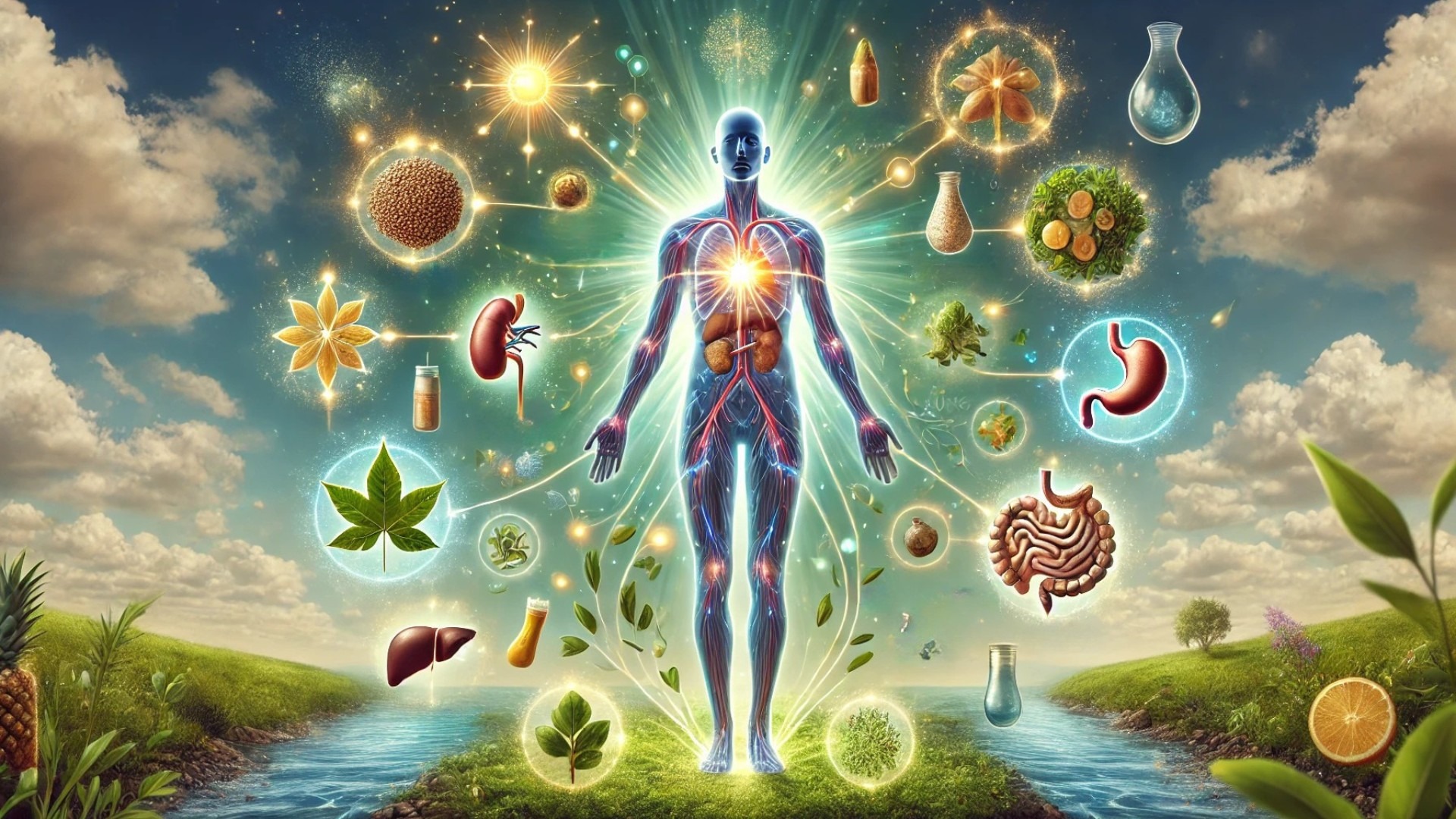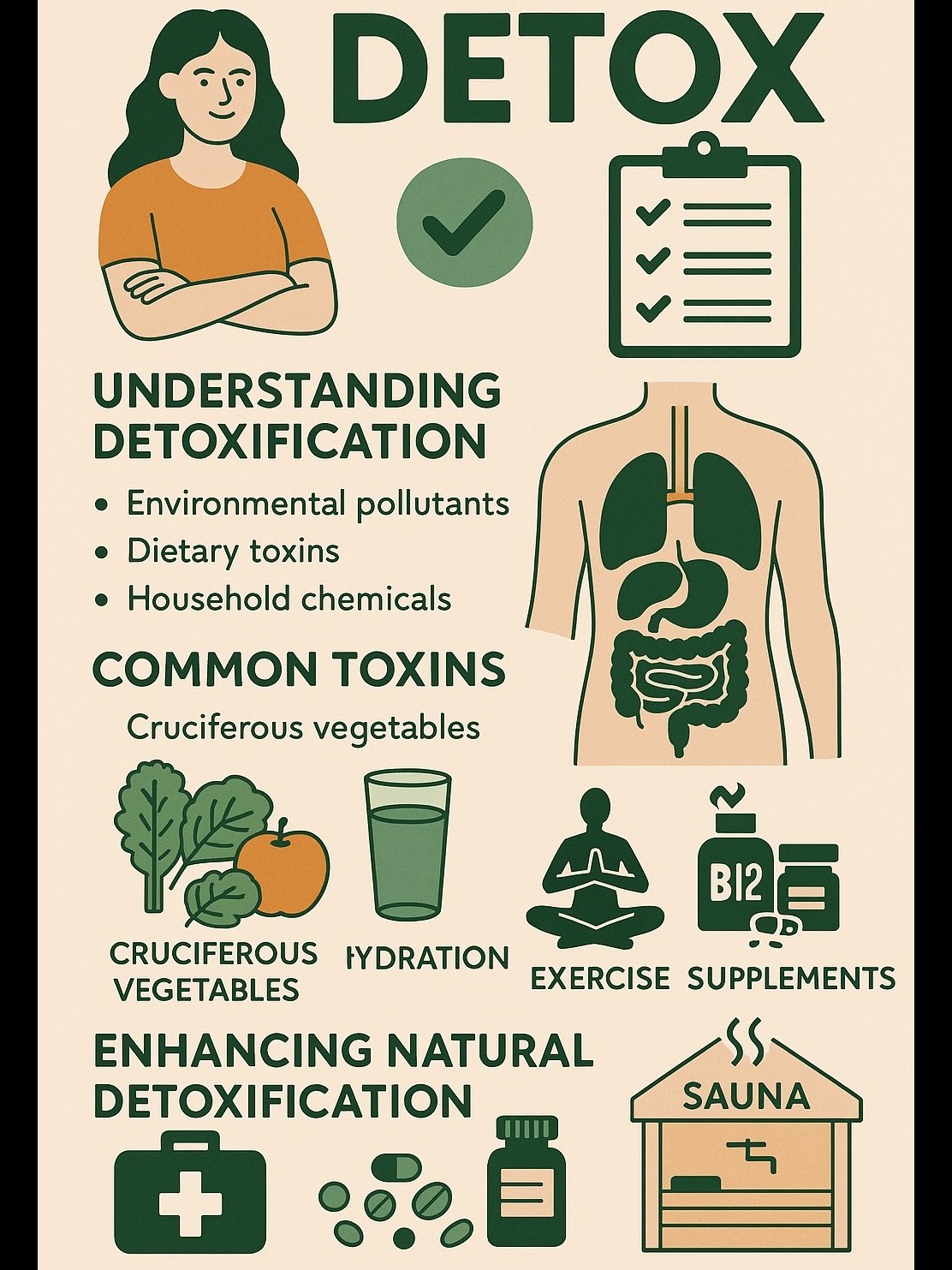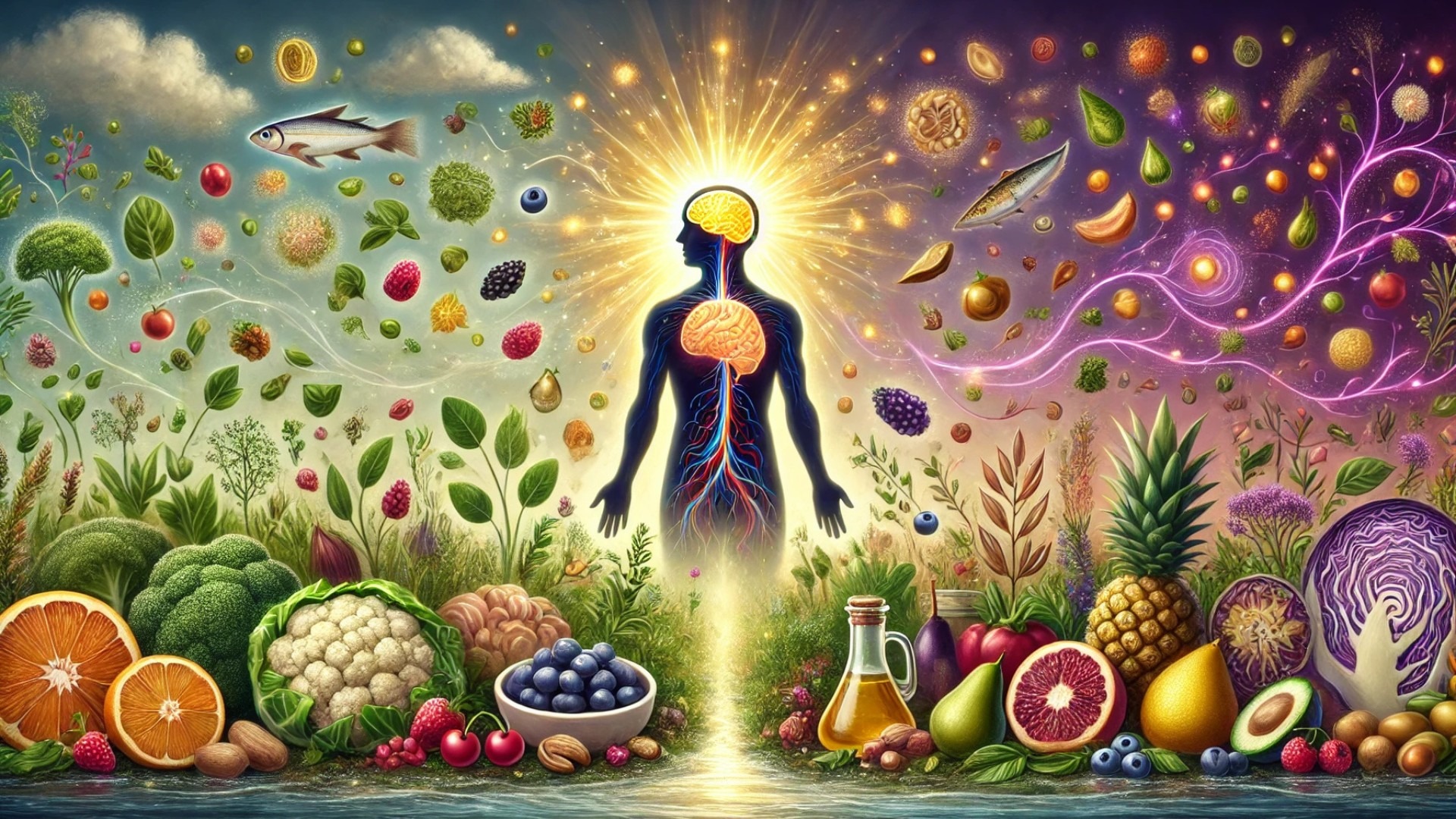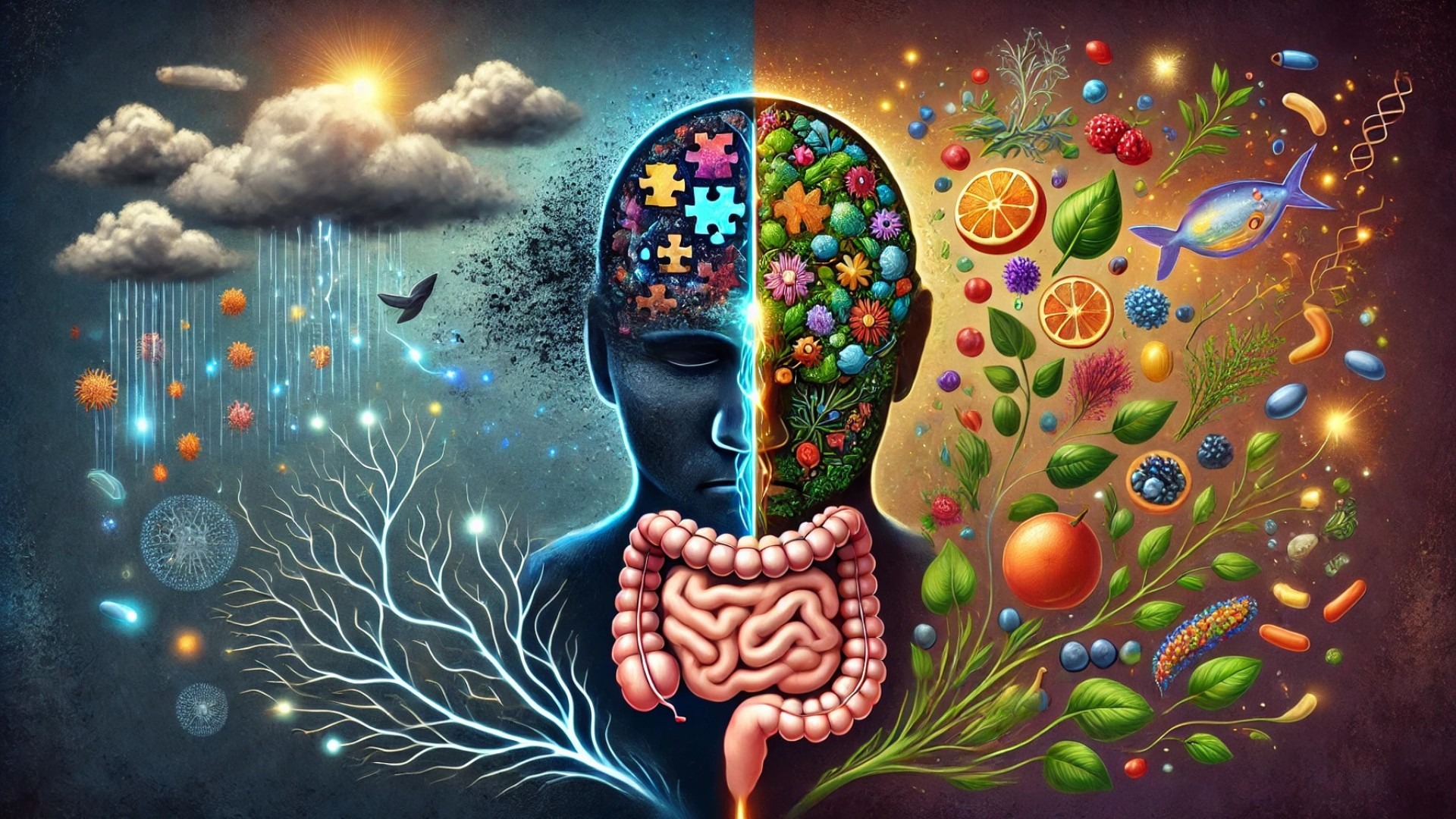

Detoxification, within the framework of functional medicine, is a comprehensive approach to enhancing the body's innate ability to eliminate toxins and restore optimal health. Functional Nutritionist’s like Kim Larson advocate for a holistic strategy that encompasses nutrition, lifestyle modifications, and targeted interventions. This guide delves into the multifaceted aspects of detoxification, drawing insights from Functional Health methodologies and incorporating practical advice from Larson Health Weight Loss.
Understanding Detoxification
Detoxification is the physiological process by which the body identifies, neutralizes, and eliminates harmful substances. The liver, kidneys, gastrointestinal tract, lungs, and skin collaboratively work to process and expel toxins. However, modern lifestyles have introduced an unprecedented burden of toxins, necessitating supportive measures to bolster these natural systems.
The Rationale for Detoxification
Daily exposure to environmental pollutants, processed foods, and stressors can overwhelm the body's detoxification pathways. The importance of periodic detoxification to mitigate the cumulative effects of these exposures, thereby enhancing energy levels, mental clarity, and overall well-being. Functional medicine posits that supporting detoxification can prevent chronic diseases and promote longevity.
Common Toxins Encountered Daily
Understanding the sources of toxins is pivotal in minimizing exposure:
Environmental Pollutants: Airborne chemicals, heavy metals, and industrial emissions.
Dietary Toxins: Pesticide residues, food additives, and artificial sweeteners.
Household Chemicals: Cleaning agents, personal care products, and synthetic fragrances.
Lifestyle Factors: Chronic stress, inadequate sleep, and sedentary behavior can impair detoxification processes.
Enhancing Natural Detoxification Pathways
Optimizing the body's detoxification involves a multifaceted approach:
Nutrition
Cruciferous Vegetables: Broccoli, kale, and Brussels sprouts contain glucosinolates that support liver detoxification enzymes, make sure to steam or roast these vegetables, they are best when cooked.
Antioxidant-Rich Foods: Organic Berries, nuts, and seeds combat oxidative stress, aiding in toxin neutralization. Wash your berries in a solution of baking soda for 10 minutes.
Hydration: Adequate water intake facilitates kidney function and toxin elimination.
Lifestyle Modifications
Regular Exercise: Physical activity enhances circulation and lymphatic drainage. If you haven’t exercised in a while, start walking, and build your strength for cardio to sweat.
Stress Management: Mindfulness practices like meditation, yoga, Thai chi, deep breathing, and adequate sleep support hormonal balance and detoxification.
Sauna Therapy: Induced sweating can assist in the excretion of certain toxins. – Check your local YMCA, or gym for a sauna or infrared sauna.
Implementing a Structured Detox Program
Many 14-day detox program focuses on whole foods, eliminating processed items, and incorporating supplements that support liver function.
Elimination of Inflammatory Foods: Removing gluten, dairy, and refined sugars to reduce systemic inflammation.
Inclusion of Nutrient-Dense Foods: Emphasizing vegetables, lean proteins, and healthy fats to provide essential nutrients.
Supplementation: Utilizing targeted nutrients to support detoxification pathways.
To support all major detox pathways (Phase I, Phase II, and Phase III) in the liver and throughout the body, you'll want to target nutrients and compounds that enhance enzyme activity, antioxidant defense, and toxin elimination. Here's a breakdown of the key detox pathways and the supplements that support them:
🧪 Phase I Detox (Activation of Toxins)
This phase uses cytochrome P450 enzymes to make toxins more reactive (and sometimes more toxic), so support with antioxidants is critical.
Key Supportive Supplements:
B-complex vitamins – especially B2, B3, B6, B9 (folate), and B12
Glutathione or NAC – prevents oxidative damage from reactive intermediates
Milk Thistle (Silymarin) – supports liver enzyme function and regeneration
Vitamin C – antioxidant that protects during toxin activation
Flavonoids (e.g., quercetin, resveratrol) – modulate enzyme activity
⚗️ Phase II Detox (Conjugation of Toxins)
This phase makes toxins water-soluble for elimination via bile or urine using six main pathways: methylation, glucuronidation, sulfation, acetylation, glutathione conjugation, and amino acid conjugation.
Key Supportive Supplements by Pathway:
Methylation:
Methylated B12 (methylcobalamin)
Methylated folate (5-MTHF)
Betaine (TMG) and Choline
SAMe
Glucuronidation:
Calcium-D-glucarate
Magnesium
Curcumin (turmeric)
Sulfation:
Sulfur-containing amino acids (e.g., cysteine, methionine)
MSM (methylsulfonylmethane)
Epsom salt baths (for magnesium sulfate)
Glutathione Conjugation:
NAC (N-acetyl cysteine)
Liposomal Glutathione
Alpha-Lipoic Acid
Amino Acid Conjugation:
Glycine
Taurine
Arginine, Glutamine
Acetylation:
Vitamin B5 (Pantothenic acid)
Acetyl-L-carnitine
🚽 Phase III Detox (Elimination)
This phase involves transporting toxins out via bile, urine, and stool.
Key Supportive Supplements:
Fiber (psyllium, flax, chia) – binds toxins in the gut
Probiotics – reduce reabsorption of toxins (especially estrogen)
Magnesium citrate or oxide – supports regular bowel movements
Bile flow support:
Dandelion root, artichoke, taurine, ox bile
Binders (for detox protocols):
Activated charcoal, bentonite clay, chlorella
💡 Bonus: Comprehensive Liver/Detox Support Formulas
Some professional-grade products combine multiple nutrients for full-spectrum support:
Designs for Health Liver Detox
Metagenics Clear Change
Thorne MediClear Plus
Biotics Research Lipotropic Detox
My own personal journey underscores the transformative power of dietary changes. After battling high blood pressure, pre-diabetes, high triglycerides, and arthritis, I adopted a functional medicine approach, focusing on whole foods and eliminating inflammatory substances like processed foods, gluten in bread, pizza and pasta, and moving to non-GMO chickpea pasta. My regimen included:
Eliminating: Gluten, refined sugars, dairy, and processed foods.
Incorporating: Leafy greens, healthy fats, lean proteins, and fermented foods.
Within months, I experienced significant health improvements, attributing my recovery to dietary changes and lifestyle adjustments.
Lifestyle Detoxification
Beyond dietary interventions, lifestyle choices play a crucial role in detoxification:
Environmental Awareness: Using natural cleaning products and personal care items to reduce chemical exposure. I use Shaklee cleaning products, pure clean makeup, and Molly's Suds Dish Pods and Molly's Suds Laundry Pods
Digital Detox: Limiting screen time to reduce electromagnetic exposure and improve sleep quality. Read a book or go for a walk after dinner.
Mindful Living: Engaging in activities that promote mental clarity and emotional balance. Bike rides, walking, hiking, time with friends, yoga, meditation and more.
Sustaining Benefits Post-Detox
Maintaining the gains achieved during a detox requires ongoing commitment:
Balanced Diet: Continuing to prioritize whole, unprocessed foods.
Regular Physical Activity: Incorporating movement into daily routines like cleaning house, wash your walls, under your appliances, and windows.
Periodic Detoxification: Engaging in seasonal detox programs to reset and rejuvenate.
Detox Recipes from Larson Health & Weight Loss
Larson Health Weight Loss offers a variety of recipes to support your detox journey:
Green Smoothie: Blend spinach, cucumber, green apple, lemon juice, and chia seeds for a refreshing start to your day.
Quinoa Salad: Combine cooked quinoa with roasted vegetables, fresh herbs, and a lemon-tahini dressing.
Detox Soup: Prepare a broth-based soup with garlic, ginger, turmeric, and a mix of seasonal vegetables.
These recipes focus on nutrient-dense ingredients that aid in the body's natural detoxification processes.
Conclusion
Detoxification, as advocated by functional medicine practitioners like Dr. Frank Lipman, is a holistic process that encompasses dietary choices, lifestyle modifications, and environmental awareness. By understanding and supporting our body's natural systems, we can achieve lasting health and vitality. Embrace the journey towards a cleaner, more balanced you.
Exploring Detoxification: Insights and Personal Journeys
Food Nearly Killed Me. Then Food Saved My Life.
 Add Row
Add Row  Add
Add 










Write A Comment